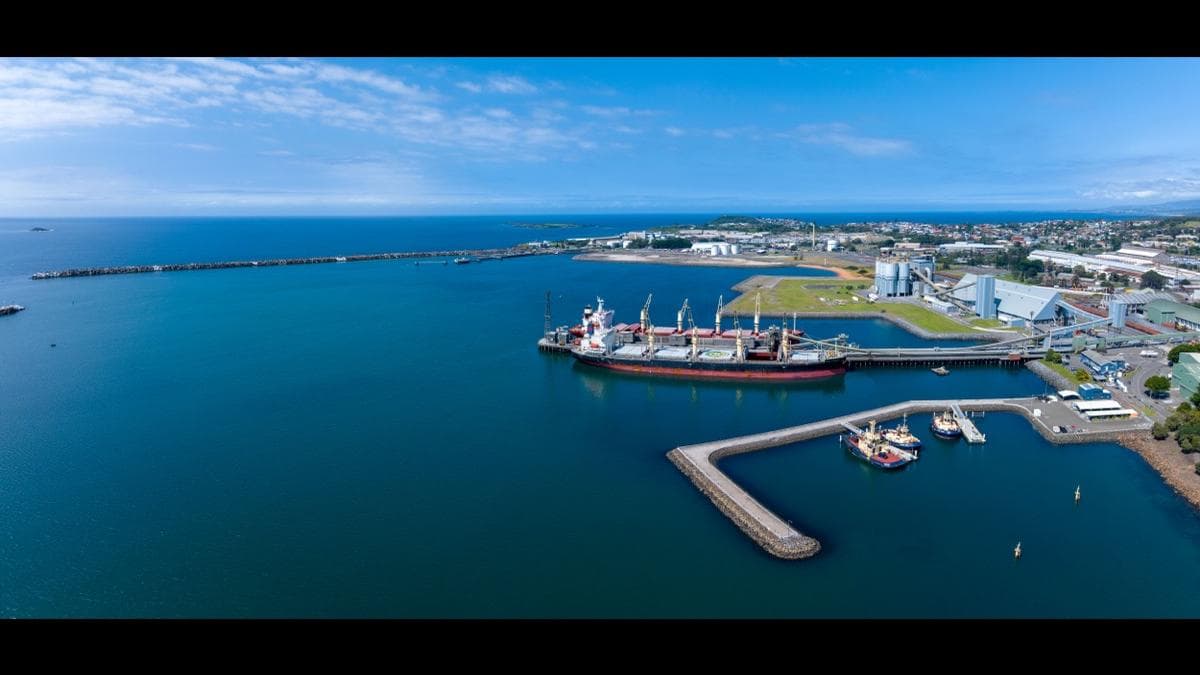NSW Ports has achieved Net Zero Scope 1 and 2 greenhouse gas (GHG) emissions following a multi-year program to decarbonise its direct operations.
The milestone, which has been independently verified, is shared in the organisation’s newly released FY25 Sustainability Report.
Since 2022, NSW Ports has been implementing initiatives across its sites at Port Botany, Port Kembla and the Enfield Intermodal Logistics Centre to achieve Net Zero Scope 1 and 2 GHG emissions by FY25, including:
- Two Power Purchase Agreements (PPAs) to source renewable energy from wind farms for all directly managed electricity consumption.
- Two major solar installations at the Enfield Intermodal Logistics Centre registered with the Clean Energy Regulator (CER), producing Large-Scale Generation Certificates (LGCs) to offset grid electricity recharged by our tenants.
- Energy reduction measures including lighting upgrades, HVAC optimisation and equipment automation across directly managed assets.
- Retirement of most internal combustion engine (ICE) utility vehicles in favour of electric, hybrid and plug-in hybrid models.
- A small amount of unavoidable residual emissions has also been offset using high quality Australian Carbon Credit Units (ACCU) (representing only 1.5% of total FY21 baseline GHG emissions).
CEO Marika Calfas said the Net Zero achievement reflects a whole-of-business commitment to delivering initiatives in NSW Ports’ 2022-2025 Sustainability Strategy and Master Plan, including to manage assets sustainably.
“The breadth of initiatives we have implemented in the past three years shows that a variety of measures can drive reductions. Lighting upgrades and HVAC optimisation alone cut our electricity usage by 16% at Port Botany, 10% at Port Kembla and 45% at Enfield Intermodal Logistics Centre.”
“While the scale of our Scope 1 and 2 GHG emissions is modest, it is an important step forward as we continue to engage with tenants and port users on their GHG reduction plans (our Scope 3 emissions),” Ms Calfas said.
Other highlights in this year’s Sustainability Report include the development and roll out of the Supplier Code of Conduct; the inaugural Community Boat Tours and ongoing investment in infrastructure to increase efficiency of freight movement.
The full report can be found here.

